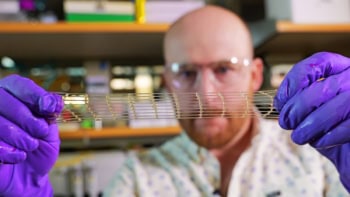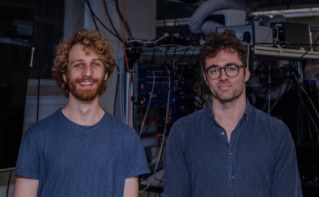
Human pluripotent stem cells are cells that can be grown into multiple different types. The differentiation of these stem cells provides a variety of human cell types for use in tissue modelling, cell therapies and even tissue transplantation. However, one of the major limiting factors to the effective use of pluripotent stem cells comes from “scaling-up” of these cells to produce the large number needed for effective studies; with logistical challenges including the expensive techniques required to do this. Additional issues arise from the methods used to culture stem cells, with the majority of protocols relying upon 2D surfaces, which don’t replicate the 3D microenvironment native to cells in the body.
AlgTube
Researchers at the University of Nebraska have developed a potential solution to these issues by creating a cost-effective 3D culture system (named the AlgTube 3D cell culture system) that enables the expansion and differentiation of cells. The AlgTube system is based around a 3D culture platform that allows cell growth within a 3D environment. This offers advantages over traditional 2D culture methods, which fail to replicate the native environment in which stem cells grow and differentiate within the body (Biofabrication 10 025006).
In this system, cells are suspended within alginate hydrogel tubes. This enables interactions between cells encapsulated within the hydrogel, as well as expansion within the hydrogel. The AlgTube system offers a large scope of expansion based on the much-increased area for growth provided by the 3D environment. Hydrogels are solid polymer-based (alginate-based, in this system) biomaterials, which are highly water saturated and porous, and are widely utilized for 3D culture of cells. Alginate, in particular, is affordable and biocompatible, making it perfect for widespread use in hydrogel form.
Improving on cell factories
Whilst “cell factories” (cell culture flasks with large surface areas and multiple plastic layers) enable expansion of stem cells in 2D, their use can be arduous due to their size and they require multiple incubators. AlgTube can provide similar expansion rates to cell factories in a much smaller system, reducing the reliance upon large lab incubators and producing cells that are grown within a physiologically relevant environment.
The research group developed specific spatial configurations that allow for efficient oxygen and nutrient diffusion throughout the 3D system. The system encapsulates cells within a 400 µm diameter, avoiding any physical stress and enabling cell culture medium to easily diffuse to the cells.
The process of cell growth and expansion within AlgTube requires an initial clustering phase – where cells aggregate into clusters – followed by the cell expansion phase, where a large cell mass develops within the device.
The researchers also tested the effect of different initial cell seeding densities on the rates of expansion. They observed similar final cell counts when seeding 1 or 10 million cells, and all cells expressed the important pluripotency marker OCT4. This allows researchers employing the AlgTube system to use their stem cells more sparingly without compromising time or final cell numbers.

The researchers also demonstrated that the AlgTube system can facilitate growth of different stem cells, with induced pluripotent stem cells (iPSCs), mesenchymal stem cells (MSCs) and embryonic stem cells (ESCs) being grown within the system for 10 days without altering their stemness (retention of stem cell pluripotency). These cells could also still be differentiated to the different terminal lineages (ectoderm, mesoderm and endoderm) allowed by pluripotent stem cells.
Future opportunities
The AlgTube system provides a useful tool for producing a large amount of stem cells for a variety of purposes. It also allows for the growth and expansion of cells within a physiologically relevant and 3D microenvironment. This system may enable the easy mass expansion of stem cells for lab groups, without requiring the money and resources of a large pharmaceutical company, thus enabling important studies by university and smaller industrial companies. The authors note that future AlgTube research would benefit from investigating the integration of various human cell types into the system, such as adult stem cells or T-cells.



